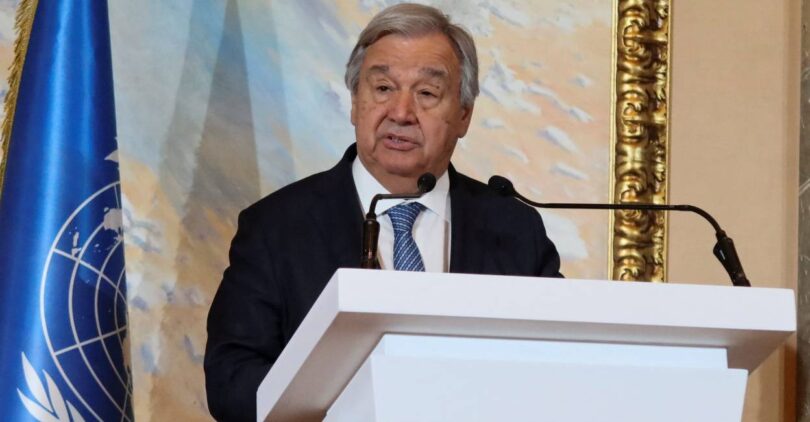On the eve of World Press Day, the United Nations Chief, Antonio Guterres has warned that the media is under attack in every corner of the world and all nations must stop the targeting of truth and the journalists who report it. Guterres expressed worry over the 50% increase in the killing of media workers in the previous year and stressed that freedom of the press is the foundation of democracy and justice. According to him, truth is threatened by disinformation and hate speech seeking to blur the lines between fact and fiction, between science and conspiracy.
Nations across the world, journalists, civil society, media organizations, and human rights activists have observed World Press Day on May 3rd. The rallies, debates, and talk shows have been arranged to discuss the freedom of media, challenges confronting press freedom, and risks attached to sane criticism and constructive critique in the contemporary world. Modern technological innovations had brought an unimaginable revolution in the information and media industry that put an amazing impact on scholarly work and public life. Digital platforms have empowered the media men, provided new ways of expression, and enhanced public access to information. However, the states’ suppression, and curbs on free media, as well as intimidation and harassment of journalists by the state organs, terrorist groups, and criminal gangs continued over the past decades. The collapse of the media industry has led to the closures of local news outlets and the consolidation of media into the hands of the few influential, which promoted cartelization in the media industry and threatened freedom of the press and expression. Despite tremendous development, comforts, and technical resources, journalism had been one of the riskiest, and most insecure professions, whereas reporters remained at the aim of the powerful elite, and state institutions, along with facing vague regulatory laws and discrimination throughout the past.
Media acts as the fourth pillar of a state and plays an important watchdog role in educating and shaping public opinion in the country. It also strengthens society, promotes democracy, and fights agaisnt social evils, transnational crimes, and corruption in the world. However, the non-democratic authoritarian regimes, autocratic rulers, and totalitarian governments in different parts of the world consider the free press a threat to their rule and resultantly introduce dual-purpose laws, and strict regulations to brutally deal with free media, suppress freedom of expression, and reduce space for sane criticism. At the same time, a planned misinformation campaign and character assassination of journalists and anchorpersons had become proven tools for aggressive political groups, and rogue regimes in third-world countries across the world. According to statistics, at least 67 media workers including Pakistani investigative journalist Arshad Sharif were killed cold-blooded in the previous year and their families are still awaiting justice from the states. The targeting and harassment of media workers both on and offline are common and numerous journalists had been detained, and prosecuted by dictatorial regimes around the world. As said, nearly three-quarters of women journalists have experienced violence online and one-quarter have been threatened physically. According to the UN report, 85% of the world’s population lives in those countries where media freedom has declined over the past five years, while 180 nations need to work to provide a conducive working environment for the media.
Currently, press freedom is in a dreadful condition in a majority of nations, while artificial intelligence, disinformation, and hybrid reporting pose serious threats to professional journalism. Historically, journalists and media organizations had always sought and reported the truth and faced serious repercussions in the line of their duty throughout history. The battle between good and bad, lies and truth continues while the press always raised its voice against the dictatorial regimes and supported the oppressive and disadvantaged communities, and paid a heavy price for the poise profession. The 30th anniversary of First World Press Day reminded governments around the globe of their duty to preserve freedom of expression and encourage the masses to support media workers in the fulfillment of their duty. At the same time, world press day strengthens the resolve of reporters and media persons across the globe to carry forward their mission of fearless and fact-based journalism to make this world a peaceful, just, and liveable place in the universe.







